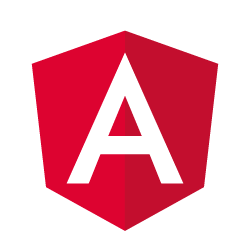I recently returned from Angular Conf 2017, an annual event that takes place in Salt Lake City. It was well-organized and incredibly exciting. There was angular swag, custom-designed angular graphics and banners, an angular rap with nerds onstage doing *terrible* attempts at dancing! All in all, it was an A+ experience.
My favorite workshop covered the Angular 4 compiler. In an hour, we picked the compilation process apart to see exactly how it works, and even turned the compiler off while we manually compiled some simple examples.
One thing that was missing from the conference was any mention whatsoever of angular 1. Those familiar with the background of angularJS know that the switch to angular 2.0 eight months ago ushered in a whole new paradigm that is not backwards compatible. And while angular 2 is absolutely a better, faster framework, early adopters of angular are stuck in a state of limbo. Many of us have just finished writing entire production applications using Angular 1.x with thousands of LOC. And while there are tools to help teams upgrade, most teams end up having to rewrite large portions of their applications. It is a costly process.
I wanted some mention of us, the invisible people stuck in a very difficult position due to the angular development team’s lack of foresight. Based on the people I talked to at the conference, I’d guess at least 40% of us are in exactly that position. Yes, we want to see the newest, latest, and greatest updates, but we also want some excitement around what we’re building every day, and some acknowledgement of the bind we’re in for the future. Yet there was not even one talk or workshop acknowledging that angular 1 even still exists.
Taking this up with the angular team during a Q&A yielded the condescending answer: “Well, you just need to upgrade.” They forget that not every company has unlimited resources like google does. It seems they are developing for the most elite teams that have developer time to spare.
(Relatedly, another piece of advice from the angular team: update your angular package every 2 weeks to get every miniscule versioning change. It’s a good idea in theory, but most startups don’t have engineers just sitting around waiting to read release notes and dependency changes every two weeks.)
I feel invisible to them, like my work doesn’t matter. As an early adopter and early angular evangelist, I feel almost punished for adopting early, as our eager Angular 1 development landed my company in the legacy code position we are now in. I love angular, but I’d love to work on a framework where I feel respected and acknowledged by the team developing it, instead of being ignored like last week’s lemonade.